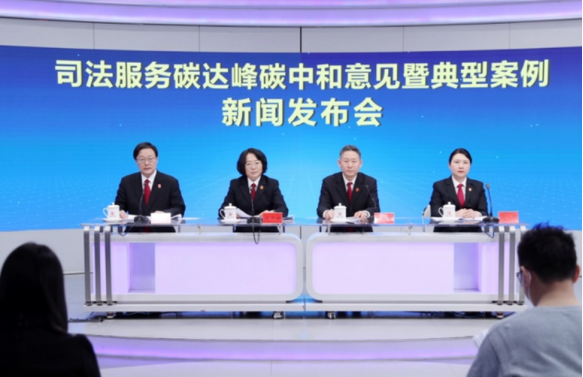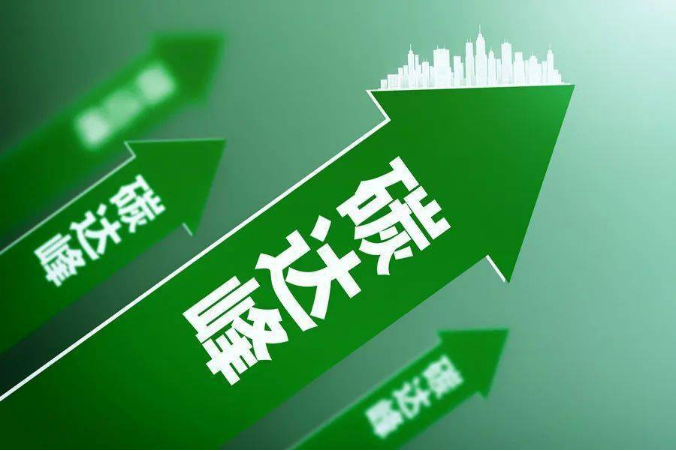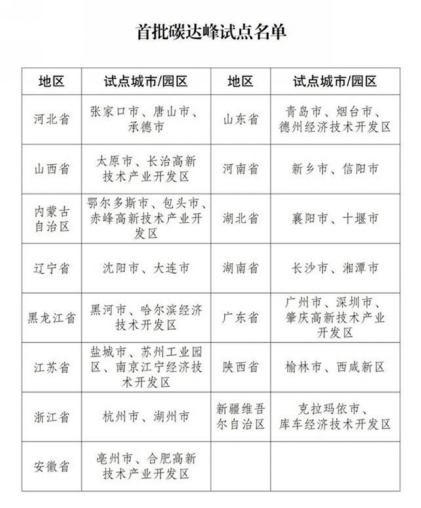2023 top 10 SDG policies in China
2024-01-05GoldenBee责任编辑0
In recent years, China has actively played its role as a responsible major country by taking the lead in implementing the United Nations 2030 Agenda for Sustainable Development, and great achievements have been made in many fields. As rural vitalization has entered a new stage, the public service system has become more secure, energy conservation and carbon reduction efforts have become more systematic, and ecological and environmental governance has been effective. China's wisdom and initiatives has been continuously contributing to global sustainability.
This article shares the 10 influential Chinese policies on sustainability in 2023, such as the “No.1 central document” issued by the Central Government to promote rural vitalization, as well as laws and regulations regarding the legislation, standardization and construction of pilot projects for carbon peak and carbon neutrality, with a wide coverage of fields like rural vitalization, social inclusion, energy saving and carbon reduction, green consumption, and the construction of eco-civilization.
Let us review these influential Chinese policies on SDGs in this year.
This article shares the 10 influential Chinese policies on sustainability in 2023, such as the “No.1 central document” issued by the Central Government to promote rural vitalization, as well as laws and regulations regarding the legislation, standardization and construction of pilot projects for carbon peak and carbon neutrality, with a wide coverage of fields like rural vitalization, social inclusion, energy saving and carbon reduction, green consumption, and the construction of eco-civilization.
Let us review these influential Chinese policies on SDGs in this year.
01 “No.1 central document” for 2023 was released to comprehensively promote rural vitalization

On February 13, 2023, the Central Committee of the Communist Party of China and the State Council jointly released the “No.1 central document” for 2023, namely the Opinions of the Central Committee of the Communist Party of China and the State Council on Comprehensively Promoting the Key Work of Rural Revitalization. The Opinions proposes that China shall firmly hold the bottom lines of ensuring national food security and preventing a large-scale backslide into poverty and solidly promote key tasks involving rural development, rural construction, and rural governance to accelerate the construction of a powerful agricultural country and build livable and businesses-friendly beautiful villages.
Highlights: As the 20th policy statement released by China's central authorities to guide the work concerning agriculture, rural areas and farmers, the “No.1 central document” for 2021 has outlined nine tasks in comprehensively promoting rural vitalization. The document notes that the most arduous and heavy task of building a modern socialist country in all respects still lies in the countryside. This prioritizes the work concerning agriculture, rural areas and farmers against the external environment where challenges and opportunities coexist in China's development.
Highlights: As the 20th policy statement released by China's central authorities to guide the work concerning agriculture, rural areas and farmers, the “No.1 central document” for 2021 has outlined nine tasks in comprehensively promoting rural vitalization. The document notes that the most arduous and heavy task of building a modern socialist country in all respects still lies in the countryside. This prioritizes the work concerning agriculture, rural areas and farmers against the external environment where challenges and opportunities coexist in China's development.
02 The Supreme People’s Court specified judicial services to promote carbon peak and carbon neutrality

On February 17, 2023, the Opinions of the Supreme People's Court on Completely, Accurately, and Comprehensively Implementing the New Development Philosophy and Providing Judicial Services for Actively and Steadily Promoting Carbon Peak and Carbon Neutrality was released. Assistance shall be provided in coordinating and balancing relationships between development and emission reduction, overall and local development, short-term and medium and long-term development, and government and market in accordance with the law. Carbon peak and carbon neutrality shall be actively and steadily promoted, and industrial restructuring, pollution and carbon reduction, ecological protection, and response to climate change shall be coordinated.
Highlights: In recent years, cases involving carbon trading disputes have been characterized by the emergence of new types and an annual increase in numbers. The Opinions is the first normative document on carbon peak and carbon neutrality issued by the Supreme People's Court, which provides guidance for the people's courts at all levels to properly adjudicate all kinds of cases involving this new area by law, and is of great significance in helping achieve carbon peaking and carbon neutrality goals.
03 Eleven central authorities jointly issued the Guidelines for the Establishment of a Standard System for Carbon Peak and Carbon Neutrality

On April 22, 2023, the Guidelines for the Establishment of a Standard System for Carbon Peak and Carbon Neutrality, jointly issued by eleven central authorities including the National Standardization Commission, proposes that a carbon peak and carbon neutral standard system will be fundamentally built around basic general standards, as well as the development needs of carbon emission reduction, carbon removal, and carbon market. The document also notes that by 2025, no less than 1,000 national and industry standards (including foreign language versions) will be made and revised; the degree of consistency with international standards will be significantly improved; full coverage of standards will be achieved for carbon accounting verification in major industries, and energy efficiency standard indicators for key industries and products will be improved steadily.
Highlights: The Guidelines specifies that the carbon peak and carbon neutrality standard system includes four primary subsystems, and it is further subdivided into 15 secondary subsystems and 63 tertiary subsystems. This system covers key industries and fields such as energy, industry, transportation, urban and rural construction, water conservancy, forestry and grassland, finance and residential life, which will provide a standard basis for the implementation of the carbon peak and carbon neutrality policy, the industrial structural adjustment, and the green transformation in the mode of production and lifestyle.
04 The Ministry of Commerce and the NDRC jointly released the Measures for the Administration of the Use and Reporting of Single-Use Plastics by Businesses in the Commercial Field

On May 16, 2023, the Measures for the Administration of the Use and Reporting of Single-Use Plastics by Businesses in the Commercial Field, jointly released by the Ministry of Commerce and the National Development and Reform Commission (NDRC), clarifies that operators of retail sale of goods, e-commerce, catering, accommodation, and exhibition should comply with the laws of the state and relevant provisions that prohibit and restrict the use of non-degradable plastic bags and other disposable plastic products. The Measures also outlines that operating units of retail establishments, enterprise e-commerce platforms (including express delivery platforms) and express delivery companies shall disclose the use and recycling of plastic bags and other disposable plastic products in accordance with the principle of authenticity and completeness.
Highlights: Over the years, great importance has been extensively attached to plastic pollution control in China. The Measures jointly released by the two central authorities is a key initiative to help form a green low-carbon mode of production and lifestyle and also a concrete action to reduce the use of traditional plastics and synergistically promote carbon reduction, pollution reduction and green expansion, which is of great significance in enhancing the supply of eco-friendly substitutes for plastics and foster the concept of green consumption.
05 August 15 is chosen as the First National Ecology Day

On June 28, 2023, a decision was made at the Third Meeting of the Standing Committee of the 14th National People's Congress to establish August 15 as the First National Ecology Day. What makes August 15 special is that on the day in 2005, President Xi, who then worked as Party Chief of Zhejiang Province, first put forward the concept that “lucid waters and lush mountains are invaluable assets” when visiting Anji county in the province. In line with the basic principle of determining the date of commemorative days and activities, the establishment of August 15 as the National Ecology Day can fully reflect the features of originality, iconicity, uniqueness.
Highlights: The assertion of “lucid waters and lush mountains are invaluable assets” is a core idea of Xi Jinping Thought on Ecological Civilization. The establishment of the day will help us better study, publicize and implement Xi Jinping Thought on Ecological Civilization, raise awareness about ecological civilization in the whole society and make more people proactively support environmental protection in terms of both thinking and action. On the First National Ecology Day in 2023, the state carried out ecological civilization publicity and education activities by various means and achieved remarkable results.
06 The Regulation on the Construction of Barrier-Free Environments came into effect

On June 28, 2023, the Regulation on the Construction of Barrier-Free Environments was passed and adopted at the Third Meeting of the Standing Committee of the Fourteenth National People's Congress adopted, and it came into effect on September 1, 2023. The Regulation is formulated for purposes of ensuring that disabled persons and the elderly can integrate into social life on an equal, full and convenient basis and promoting the sharing of the fruits of economic and social development by all members of society.
Highlights: People's livelihoods matter as much as every leaf on every branch. The Regulation is the first legislation that China has enacted on creating a barrier-free environment, with special focuses on tough problems of key groups such as persons with disabilities and the elderly. As an important legislation on social construction, the Regulation will help improve the social inclusiveness and the well-being of people's livelihoods in China.
07 The State Council issued the Implementation Opinions on Promoting the High-Quality Development of Inclusive Finance

On October 11, 2023, the Implementation Opinions on Promoting the High-Quality Development of Inclusive Finance, issued by the State Council, proposes that in five years, a high-quality inclusive financial system shall be basically established. According to the Implementation Opinions, efforts should be made to improve inclusive financial products and services in key fields, new steps shall be taken to promote the supply-side structural reform of inclusive finance, new improvements shall be achieved in financial infrastructure and development environment, and new achievements have been made to prevent and resolve financial risks, so as to facilitate the entry into a new level of common wealth via inclusive finance.
Highlights: In 2013, the Third Plenary Session of the 18 CPC Central Committee explicitly proposed that inclusive finance should be fully developed. In 2015, the State Council issued the Plan for Advancing the Development of Financial Inclusion (2016–2020). As a necessary extension of the Plan, the Implementation Opinions will help make up for the shortcomings and build a high-level inclusive financial system, which will further promote the high-quality development of inclusive finance and better meet the financial needs of the people and the real economy.
08 The Green Takeout Management Criteria was approved and adopted

On November 30, 2023, approved by the State Administration of Market Regulation and drafted by the China Hospitality Association, the Green Takeout Management Criteria (GB/T 43285-2023), a recommended national standard was released and implemented. With primary focuses on the links of processing, supply and optimized green management of takeaway meals, relevant requirements on major contents were put forward, including the procurement of raw food materials, meal processing, cooking and restaurant operation, meal packaging and material use, takeaway delivery, waste disposal, green takeaway display, green publicity and green quality management.
Highlights: The Criteria publicizes the concept of green catering service in takeaway activities through standardization, which is a proactive response to the special work of stopping catering waste and encouraging plastic reduction and also the first national standard for green takeaway in China. It will further standardize and guide takeaway processing, service and management, encourage catering enterprises to choose healthy and safe ingredients, establish a green supply chain system, choose high-quality and eco-friendly packaging alternatives and reduce the amount of packaging used in takeaway activities. It can also guide consumers to reduce food loss and waste when ordering takeaway and forming a green lifestyle.
09 The NDRC released the list of first batch of pilot cities seeking to peak carbon dioxide emissions

On December 12, 2023, the NDRC released a list of the first batch of pilot cities and high-tech industrial development parks that will aim to peak carbon dioxide emissions. To implement relevant deployments of the Action Plan for Carbon Dioxide Peaking Before 2030, in accordance with major tasks outlined by the National Carbon Peak Pilot Program, 25 pilot cities including Zhangjiakou and 10 high-tech industrial development parks like the Changzhi High-tech Industrial Development Area were included in the list of the first batch of pilot cities high-tech industrial development parks for carbon peaking.
Highlights: The National Carbon Peak Pilot Program is of great significance in accelerating the reform of the institutional mechanism for green and low-carbon development. As the main platform for economic development and the core focus of energy emission reduction, deepening green and low-carbon reforms and innovations in cities and parks in accordance with local conditions will not only provide experiences and practices that can be operated, replicated and generalized nationwide to contribute to the realization of the goals of carbon peak and neutrality, but will also be a key initiative for promoting high-quality development.
10 Eight national ministries jointly issued the Action Plan for Advancing the Green Transformation of Express Packaging

On December 15, 2023, the Action Plan for Advancing the Green Transformation of Express Packaging,jointly issued by eight central departments including the NDRC, focuses on key areas and major issues to enhance standardization, as well as recycling, reduction and use of non-harmful materials for express packaging. It calls for such major actions as providing special guidance to substantial reductions in the excessive packaging practices, leadership of enterprise e-commerce platforms, upgrading of a green express packaging supply chain, recyclable express packaging promotion, express packaging recycling and disposal, express packaging regulation and law enforcement, and targeted popularization of express packaging green transformation.
Highlights: The express industry is a new industry featuring rapid development over the past decade or so, and its supporting laws, rules and regulations are still being explored and improved. The release of the Action Plan can help the industry avoid following the old development model of “pollution first, treatment later” and play a synergistic role in preventive work, to effectively reduce the negative impact that the industry exerts on the environment for its development.
Best Practices
- The 100-year brand — Air Liquide also has a sense of juvenile
- Beijing Public Transportation Corporation: Developing green transportation to build a harmonious and livable capital
- CGN: Building a modern factory in barren deserts and developing a new win-win cooperation model along “Belt and Road”
Upcoming Event

All the materials on the site “Source: XXX (not from this site)” have been reprinted from other media. They do not imply the agreement by the site.
All the materials with “Source: CSR-China Website” are the copyright of CSR-China Website. None of them may be used in any form or by any means without permission from CSR-China Website.
GoldenBee Official WeChat
Copyright © Csr-china.net All Right Reserved.
京ICP备19010813号










